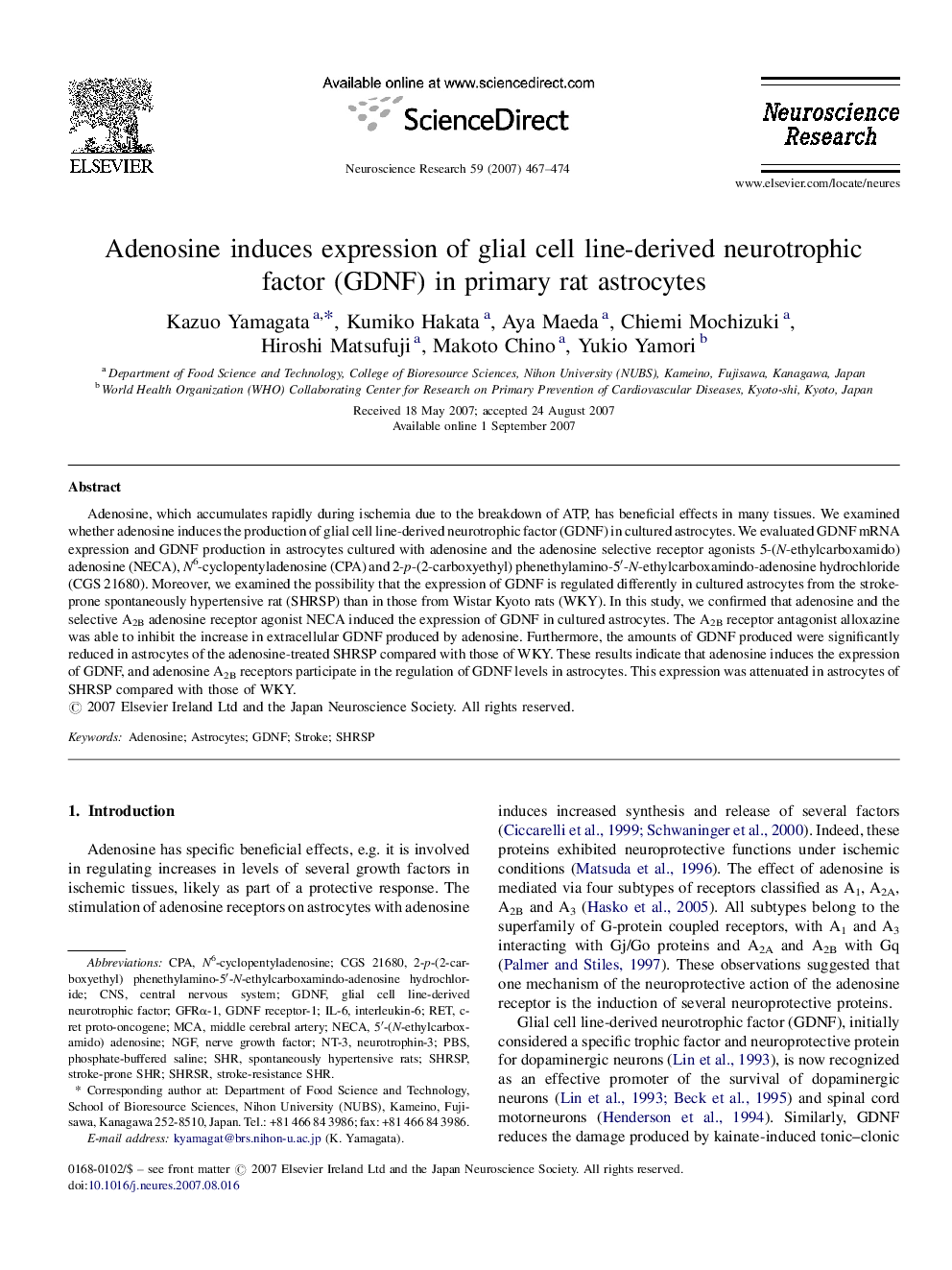| Article ID | Journal | Published Year | Pages | File Type |
|---|---|---|---|---|
| 4351945 | Neuroscience Research | 2007 | 8 Pages |
Adenosine, which accumulates rapidly during ischemia due to the breakdown of ATP, has beneficial effects in many tissues. We examined whether adenosine induces the production of glial cell line-derived neurotrophic factor (GDNF) in cultured astrocytes. We evaluated GDNF mRNA expression and GDNF production in astrocytes cultured with adenosine and the adenosine selective receptor agonists 5-(N-ethylcarboxamido) adenosine (NECA), N6-cyclopentyladenosine (CPA) and 2-p-(2-carboxyethyl) phenethylamino-5′-N-ethylcarboxamindo-adenosine hydrochloride (CGS 21680). Moreover, we examined the possibility that the expression of GDNF is regulated differently in cultured astrocytes from the stroke-prone spontaneously hypertensive rat (SHRSP) than in those from Wistar Kyoto rats (WKY). In this study, we confirmed that adenosine and the selective A2B adenosine receptor agonist NECA induced the expression of GDNF in cultured astrocytes. The A2B receptor antagonist alloxazine was able to inhibit the increase in extracellular GDNF produced by adenosine. Furthermore, the amounts of GDNF produced were significantly reduced in astrocytes of the adenosine-treated SHRSP compared with those of WKY. These results indicate that adenosine induces the expression of GDNF, and adenosine A2B receptors participate in the regulation of GDNF levels in astrocytes. This expression was attenuated in astrocytes of SHRSP compared with those of WKY.
